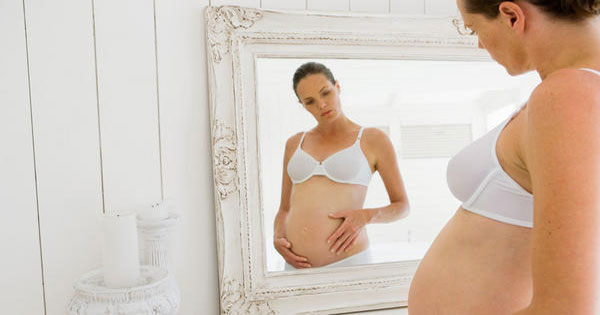Common Pregnancy Problems & Body Changes

Changes to the body during pregnancy are due to surges in hormones. These natural chemicals can bring positve changes like thicker, shinier hair and fuller breasts, but others may not be so enjoyable; however you can rest assured that most of the changes will go away once your baby is born.
► CONSTIPATION
Many pregnant women have problems with constipation. Indications of constipation include having painful bowel movements; fewer than three bowel movements per week; and tough, dry stools. Higher amounts of hormones due to pregnancy can slow digestion down and relax muscles in the bowels, which could leave many women constipated. Also, constipation can be contributed to by the pressure of the expanding uterus on the bowels.
How to treat
- Drink 10-15 glasses of water daily.
- Do not drink caffeine.
- Eat fibre-rich foods, including dried or fresh fruit, raw vegetables, and whole grain cereals and breads.
- Take a short walk or partake in moderate physical activities.
► HEARTBURN AND INDIGESTION
Hormones and the pressure of the uterus that is growing cause indigestion and heartburn. Pregnancy hormones slow down the muscles of the digestive tract, so food has a tendency to move slowly causing digestion to become sluggish. Hormones also relax the valve that separates the oesophagus in the stomach and the stomach. This permits food and acids to return up from the stomach to the oesophagus. The food and acid causes the burning feeling of heartburn. The uterus pushes on the belly making heartburn more common in later pregnancy, as your baby gets bigger.
The way to treat
- Eat several small meals instead of three big meals a day.
- Don't eat fried and greasy foods.
- Avoid citrus fruits or juices and foods that are spicy.
- Don't eat or drink within a couple of hours of bedtime.
- Do not lie down right after meals.
- Sitting yourself up can help to reduce symptoms.
► DIZZINESS
Many pregnant women complain of dizziness and light-headedness throughout their pregnancies. Fainting is rare, but it does occur in some healthy pregnant women. There are an entire host of reasons for these symptoms. The increase of more blood vessels in early pregnancy, the pressure of the increased demand for food of the body, and the demand of the enlarging uterus on blood vessels can all make a pregnant women feel lightheaded and dizzy.
How to treat
- Avoid standing for long periods of time.
- Don't skip meals.
- Lie on your left side.
- Wear clothing that is loose.
- Keep yourself cool in hot weather.
- If you begin to feel faint, lie with feet and your head flat elevated.
- Drink lots of water.
If you have vaginal bleeding or abdominal pain and feel light-headed visit your GP or midwife
► MORNING SICKNESS
In the first trimester, hormone changes can cause nausea and vomiting. This is called' morning sickness,' although it can occur at any time of day. Morning sickness usually subsides by the second trimester.
The way to treat
- Eat several small meals instead of three large meals
- Do not lie down after meals.
- Eat dry toast, plain crackers, or dry cereals before getting out of bed in the morning.
- Eat bland foods that are low in fat and simple to digest, such as bananas, rice, and cereal.
- Try Morning Sickness Bands such as the Mama Morning Sickness Sea-Bands
- Sip on water, weak tea, or soft drinks that are clear.
- Avoid scents that upset your stomach.
Visit your GP or midwife if you've got influenza-like symptoms, that might signal a more severe affliction or you have vomiting several times every day.
► EXHAUSTION IN PREGNANCY
Feeling tired is normally due to low levels of iron and is common in pregnancy. It's quite important to keep your iron levels up during pregnancy. You're able to do that by either taking a nutritional supplement recommended by your midwife or GP or through an alteration in your diet.
The way to treat
- Raising your iron levels through diet is recommended for pregnant women suffering from exhaustion. Lean red meat is the finest way to obtain iron in the diet. Other good sources are turkey and chicken – particularly the dark meat and oil-rich fish.
- Other sources of iron include legumes, peas, dried fruit, green vegetables plus some fortified breakfast cereals. Having some salad vegetables, a glass of fruit juice with your meals or citrus fruits will foster your iron absorption.
Visit our Pregnancy Vitamins and Supplements section
► SWELLING
Many women develop mild swelling in the face, hands, or ankles sooner or later in their pregnancies. As the due date approaches, swelling often becomes more noticeable.
- Drink eight to 10 glasses of fluids daily.
- Don't drink caffeine or eat foods that are salty.
- Rest and elevate your feet.
- Use compression stockings
► STRETCH MARKS
Stretch marks are small, stripe like lines in the skin that appear most frequently on the abdomen in the later periods of pregnancy when the belly is quickly expanding to accommodate a growing baby. Some pregnant women get them. Stretch marks are caused by changes in the elastic tissue that lies just beneath your skin. They start out brown, reddish, pink, purple or dark brown, depending on your skin colour. They fade after, although they never entirely vanish.
How to treat
- It really is critical to moisturise. Skin becomes more plasticised, and better able to elongate when it’s well hydrated.
Product Recommendations:
For a full range of Stretch Mark Creams visit our Stretch Marks category to find a product to suit your budget.
Useful Links:
Mama Mio - Pregnancy Skincare Range
Zita West - Pregnancy Vitamins and Supplements
Vitabiotics - Pregnacare Pregnancy Vitamins and Supplements
Back to Pregnancy Category
